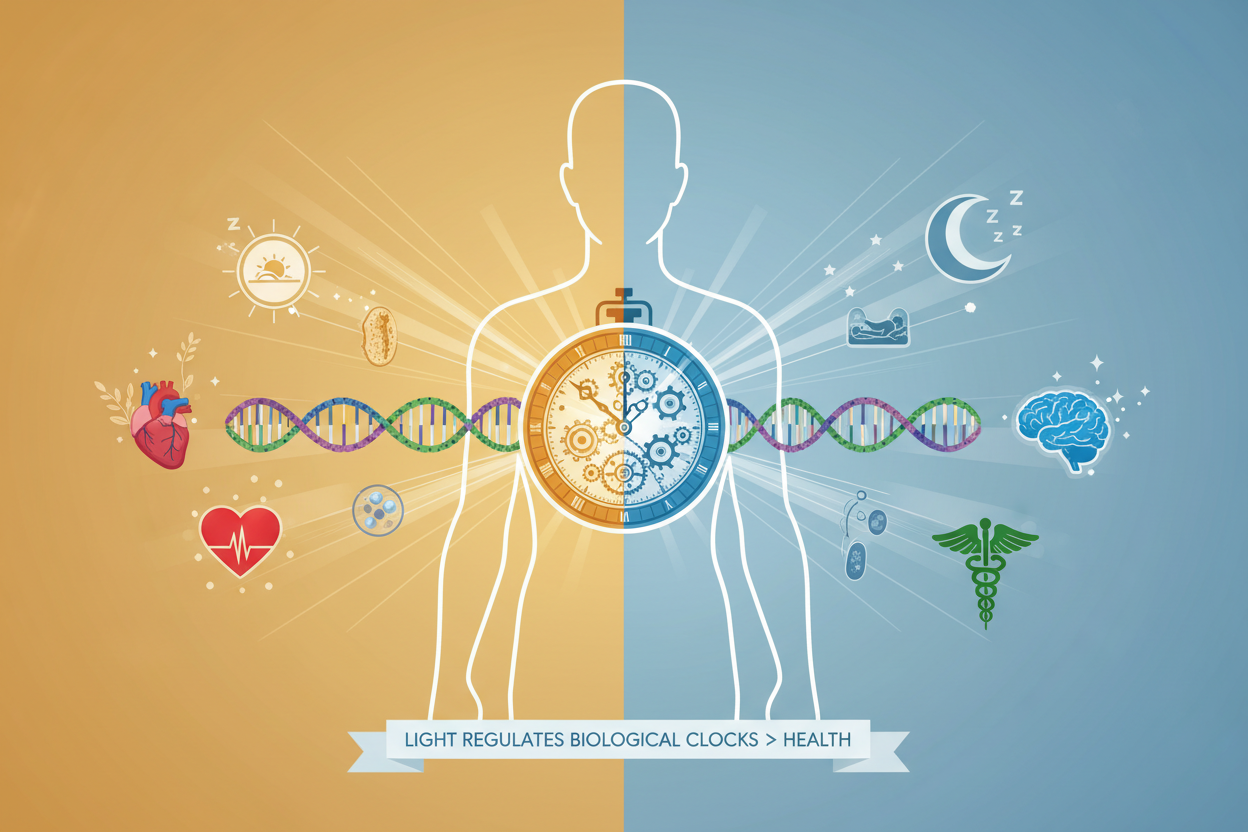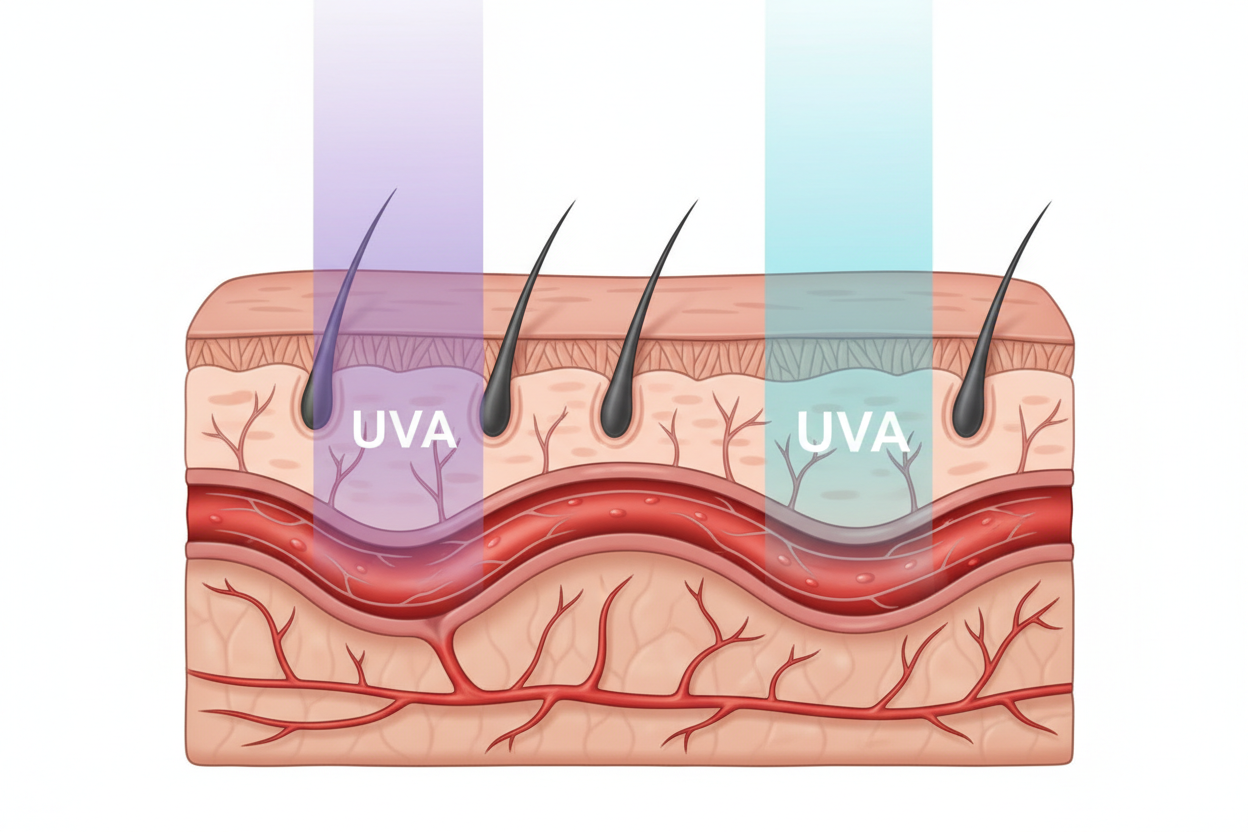

More news

Světlo nastavuje tvoje vnitřní hodiny — a tvoje hodiny nastavují tvoje zdraví
Představ si, že tvoje DNA je jako extrémně dlouhá kniha instrukce uvnitř každé buňky. Někdy se tahle kniha „roztrhne napůl“ — vznikne dvojitý zlom DNA (DSB) . To je vážná věc : když se takový zlom ...
Read more
Světlo, které umí uvolnit cévy: UVA a krevní tlak bez mýtů
Někdy se to projeví nenápadně. Ráno je tělo těžší, hlava hlučnější, srdce jako by běželo o jeden stupeň výš. Jindy to řekne přístroj: krevní tlak v zimě není stejný jako v létě. Pro spoustu lidí je...
Read more
Novoroční předsevzetí v umělém světě: proč se tělo brání, i když „děláme všechno správně"
Ten den známe všichni. Nový rok, čistý stůl, pocit, že tentokrát to vyjde. Budeme zdravější, lehčí, silnější. Posilovny se zaplní lidmi s dobrým úmyslem a pevnou vůlí. Pot, disciplína, výkon. Na úr...
Read more
Leave a comment
This site is protected by hCaptcha and the hCaptcha Privacy Policy and Terms of Service apply.